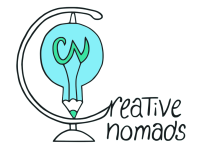Become aware of how your personal learning style, your native language proficiency and your personality all play a role in language acquisition.
Your personal learning style
How do you learn best? Are you a hands-on person? A look and learn type? Do you absorb everything around you by listening? Or do you need lots of encouragement and theory? You know yourself best, and you know what motivates you. You know what interests you, how you absorb information and put it to practical use. Rather than force you to fit into a particular learning format, I would like you to bend the learning experience to suit your skills, strengths and talents. So if sitting in a classroom isn’t for you, then let’s find the perfect alternative.
How was your time at school? Did you enjoy it? Hate it? Feel intimidated by the very prospect of sitting in a classroom? Were you always told off? Or were you the bright spark in class? Past learning experiences can definitely influence your desire to continue learning as an adult. So no matter what kind of experience you had as a kid, let’s find a way to put it aside so that it doesn’t block you today.
Your native language proficiency
What about your language level in your own native tongue? How would you rate that? Do you like language? Go to great lengths to improve your ability in it? Couldn’t care less? Haven’t really thought much about it since leaving school? Your current language ability, how well you learned it as a kid, how well you speak it today, etc., are based on unconscious choices and models that you may reuse when faced with learning another language. So it’s a good idea to analyse where you are now, and what your strengths and weaknesses are.
Your unique personality
Finally, is your personality a sponge or a barrier when it comes to language learning? Are you an extrovert, keen to get out there and gain experience, no matter what? Or are you an introvert, more likely to use language in situations of one-on-one comfort, or only when necessary or forced? How you interact with the world, influences how you learn a language. Language learning is a social act.
While performing this exercise, please be honest and realistic, but don’t be too critical either. This is not an exercise in psychoanalysis, rather an assessment that can help you make leaps and bounds in language learning. The goal here is awareness – of seeing yourself in a learning situation from an outsider’s perspective.
Keep in mind that no learner is helpless, regardless of how they may feel. Everyone has achieved success in learning; it’s how we move from A to B in life. The same principles in life can be applied to language learning.
Furthermore, there are many factors that determine language acquisition success, such as the above-mentioned, as well as:
- the kind of teacher you have (old fashioned or new school)
- the teaching focus applied (learning grammar or engaging in communicative role playing)
- the environment in which you find yourself in (at home in front of a computer screen or in the target language’s country going to work)
Fluency in language is obviously one of the goals of a student, and how we achieve fluency depends on several factors. Sometimes fluency is mistaken for perfection, but they are not the same. Perfection is a very subjective concept, and varies from person to person. How do we measure it?
While perfection is something that can take many, many years to achieve, even for a native speaker, fluency can be achieved fairly quickly. Especially if we see fluency as the ability to communicate and be understood. And isn’t that basically what everyone wants?
Your first lesson is about starting off on the right foot, with the right expectations, and feeling that you have the ability and power to control your learning outcome.
